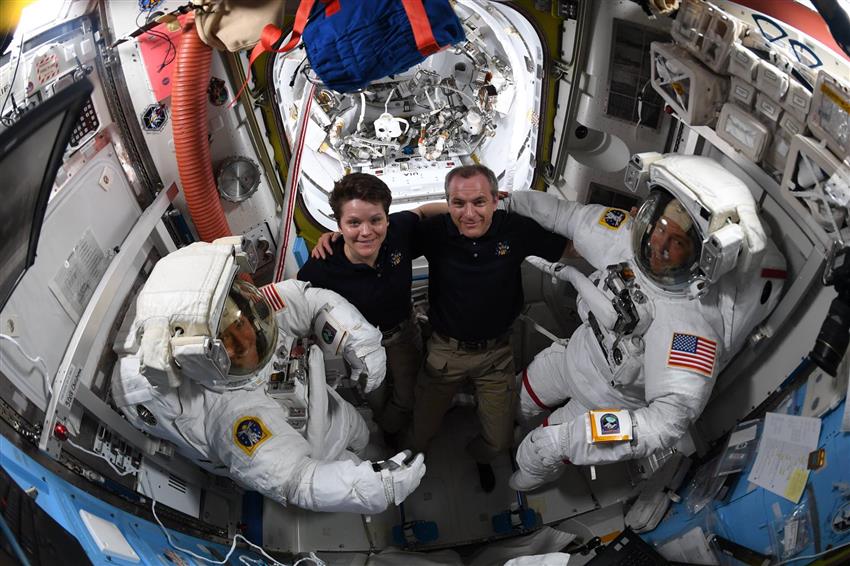How space and isolation affect astronauts' mental health
European Space Agency (ESA) astronaut Samantha Cristoforetti shares some the positive aspects and challenges faced by astronauts in space. (Credit: CSA/ESA/NASA)
Astronauts train for a long time, some waiting many years for a chance to travel to space. When they finally blast off, it is an exhilarating experience. If you look at photos and videos of astronauts aboard the International Space Station (ISS), it is obvious that they are thrilled to be there. Astronauts conduct cutting-edge science experiments and do other important work aboard the ISS, and this gives them a sense of purpose that is good for their mental health.
As astronauts push the boundaries of exploration, however, they are confronted with a hostile environment. Microgravity is extremely hard on the body and requires a lot of adaptation. New work techniques need to be acquired, and tasks that are simple on Earth, like preparing food and going to the bathroom, are challenging. The working conditions are stressful and dangerous, and astronauts can feel pressured to perform at all times.
On a more personal side, while astronauts often forge meaningful relationships with other crewmembers, social interactions are limited. The crew is small and the distance from Earth makes communications challenging. This limits connections with family and friends, which can in turn increase the feeling of isolation. And despite technology advances (for example, the Internet speed aboard the ISS recently doubled) and astronauts' preparations, isolation remains a key concern.

This infographic summarizes the main ways that space affects astronauts' mental health. (Credit: Canadian Space Agency)
What are the effects of isolation in space?
Do astronauts get depressed in space? They can, just like anyone on Earth! They can also feel isolated, bored and lonely, and these feelings are likely to increase during future deep-space missions, when contact with Mission Control and loved ones on Earth becomes less frequent. Other effects that they may face include:
- stress and anxiety
- fatigue
- sleep problems due to lack of natural light and disrupted sleep cycles
- irritability
- mood swings
- sensitivity and emotional distress
- neurobehavioral system and performance issues because of radiation, carbon dioxide and noise levels
- overview effect
Did you know that astronauts aboard the ISS are continuously exposed to an average noise level of 72 dBA, which is equivalent to the sound of highway traffic from a distance of 15 metres? It has been shown that high noise levels can have an impact on mental health.
How do astronauts deal with difficult or dangerous situations? Do astronauts ever get scared? ESA astronaut Samantha Cristoforetti answers these questions. (Credit: Canadian Space Agency/ESA/NASA)
Monitoring the mental health of astronauts on missions
Staying mentally sound in space is crucial for the mission's success, crew safety, preservation of international relations and a variety of other reasons. Astronauts are provided with training, psychological support, activities and technologies, but more work needs to be done and new innovations are required to support them, especially as we prepare to venture deeper into space.
Getting back to Earth
Living and working in space can be incredibly demanding, but readjusting to life on Earth has its share of challenges, too. That is why astronauts continue to receive support post-mission.
